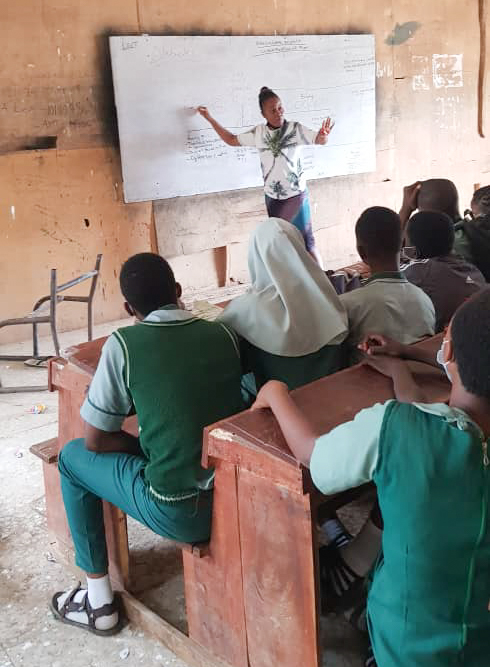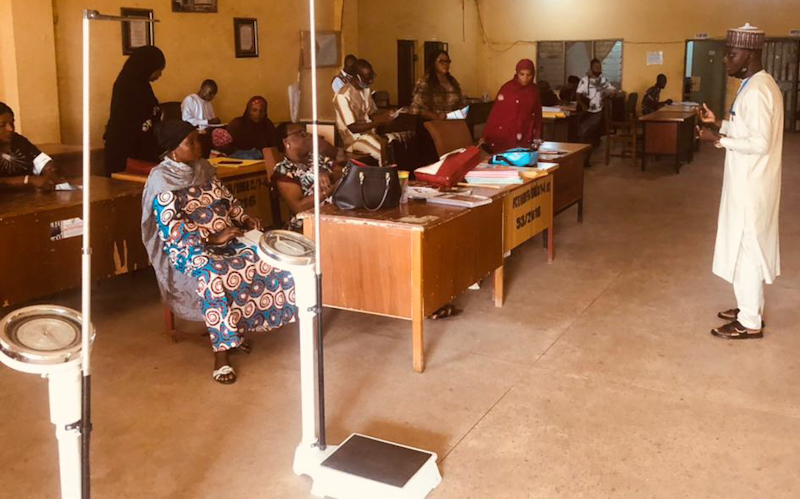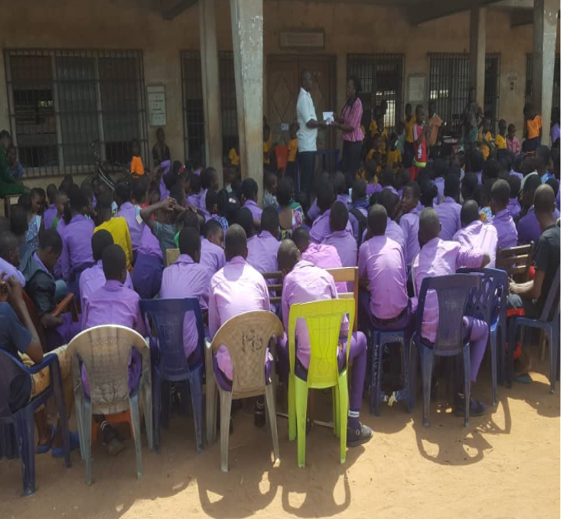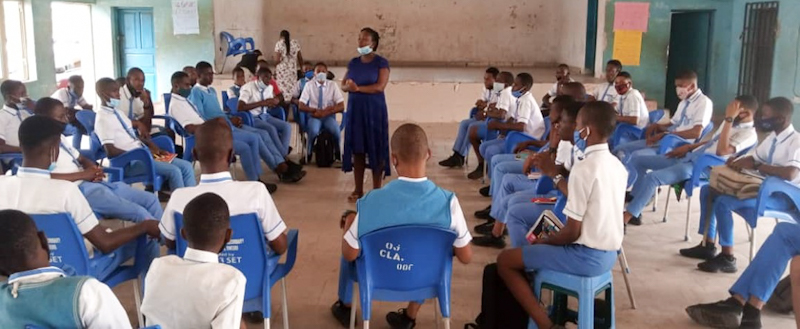Engaging School Children on the Diabetes Awareness and Care Project
Type 2 Diabetes Mellitus (T2DM) is more commonly diagnosed in the adult population. However, over the past few decades, its frequency in children has increased markedly, closely linked with the rise in childhood obesity[1][2]. A study published in the Journal of the Endocrine Society showed that obese children are four times more at risk of developing T2DM compared to children with a body mass index (BMI) in the normal range[3]. In 2019, it was estimated that 38.2 million children under the age of five years were overweight or obese, while in 2016, 340 million children and adolescents aged 5-19 were overweight or obese[4]. This is worrisome and has birthed several efforts and recommendations for parents/guardians to ensure children live healthier lifestyles[4].
The Diabetes Awareness and Care (DAC) project, being implemented by the Federal Ministry of Health (FMoH), in partnership with Health Strategy and Delivery Foundation (HSDF), recognizes the importance of providing individuals with knowledge about T2DM. The project offers increased access to basic screening services to support early disease detection; even in children. Further to its work with frontline health workers, and health facilities, the DAC project also focuses on increasing the awareness of Diabetes Mellitus among students and teachers in secondary schools.
The DAC project works with Community-Based Organizations in the project communities to conduct visits to secondary schools. In the FCT, we partner with Society for Women Development and Empowerment of Nigeria (SWODEN), and Centre for Family Health Initiative (CFHI) in Imo State. These visits by the CBOs aim to increase the awareness of Diabetes Mellitus in children, and from very early on, expose them to the dangers of the disease. The students are equipped with knowledge on how best to prevent diabetes and live healthier lifestyles. The project engages with teachers (in the school context who act as caregivers) and school nurses to equip them with the same knowledge and tools to further accentuate learnings.
The CBOs also support the formation of health clubs or the strengthening of already existing health clubs. These health clubs serve as avenues where the CBO representatives share practical information on checking their weight, height and calculating their Body Mass Index (BMI). In addition, they are taught about lifestyle modifications, such as the importance of healthy diets, avoiding smoking, and excessive alcohol intake.
So far, in both states, the project has assisted the formation of 21 health clubs (13 in Imo and 8 in the FCT), sensitized 528 teachers (138 in Imo and 390 in the FCT) and 2,483 children/youth (1073 in Imo and 1,410 in the FCT). More so, the project has aided the development of lesson plans and topic guides focused not just on diabetes, but also on non-communicable diseases as a whole. There are plans to adopt the health guides in the schools even after the project ends.

Formation of Health Clubs in Junior Secondary School, Garki, AMAC LGA, FCT 
Sensitization and Screening at Junior Secondary School, Garki, AMAC LGA, FCT

Diabetes Club Inauguration at Diligent Secondary school Amurie Omanze in Isu LGA, Imo state 
Diabetes Club Inauguration at Government Secondary School, Owerri, Imo State
Source
[1] Haines, L., Wan, K., Lynn, R., Barrett, T., & Shield, J. (2007). Rising Incidence of Type 2 Diabetes in Children in the U.K. Diabetes Care, 30(5), 1097-1101. doi: 10.2337/dc06-1813
[2] Mayer-Davis, E., Lawrence, J., Dabelea, D., Divers, J., Isom, S., & Dolan, L. et al. (2017). Incidence Trends of Type 1 and Type 2 Diabetes among Youths, 2002–2012. New England Journal Of Medicine, 376(15), 1419-1429. doi: 10.1056/nejmoa1610187
[3] Abbasi, A., Juszczyk, D., van Jaarsveld, C., & Gulliford, M. (2017). Body Mass Index and Incident Type 1 and Type 2 Diabetes in Children and Young Adults: A Retrospective Cohort Study. Journal Of The Endocrine Society, 1(5), 524-537. doi: 10.1210/js.2017-00044
[4] World Health Organization. (2021) Obesity and overweight: Key facts.Retrieved 23 June 2021, from https://www.who.int/news-room/fact-sheets/detail/obesity-and-overweight
Grants and Business Development Specialist
We are seeking a highly motivated and experienced Grants and Business Development Specialist to join our organization. The successful candidate will be responsible for identifying funding opportunities, developing grant proposals, and fostering partnerships with potential donors and stakeholders (regional and global). This role plays a vital part in securing funds and resources to support our organization’s mission and projects.
Apply NowPublic Health Consultant, Guinea
The consultant (working with the Accelerator team) will collect results from the tool, organize a meeting with stakeholders to discuss results from the tool, and produce a report on key findings and recommendations from the tool to be shared publicly.
Apply NowPublic Health Associate, Senegal
We are currently in search of an experienced Public Health professional in Senegal to work on the anticipated Nutrition Capacity Development and Financing Platform and provide technical assistance to elevate nutrition financing and strengthen local capacity to support these efforts. The Associate must be bilingual (English and French).
Apply Now